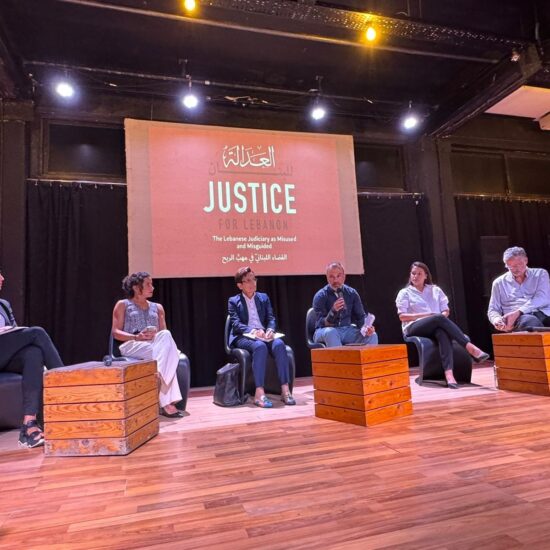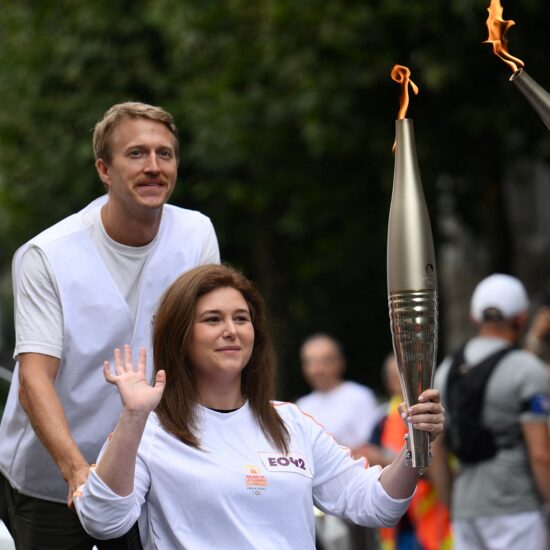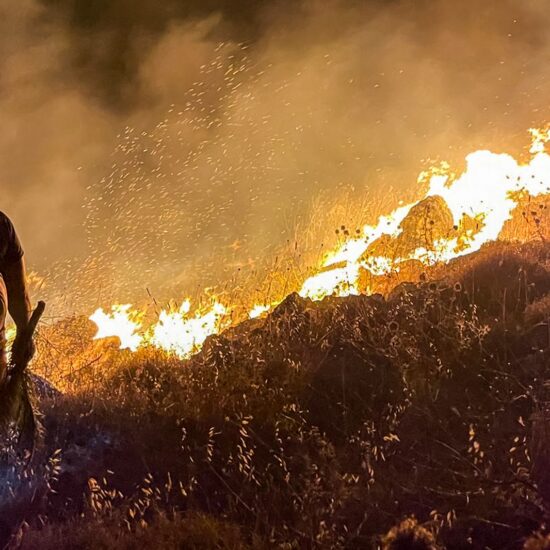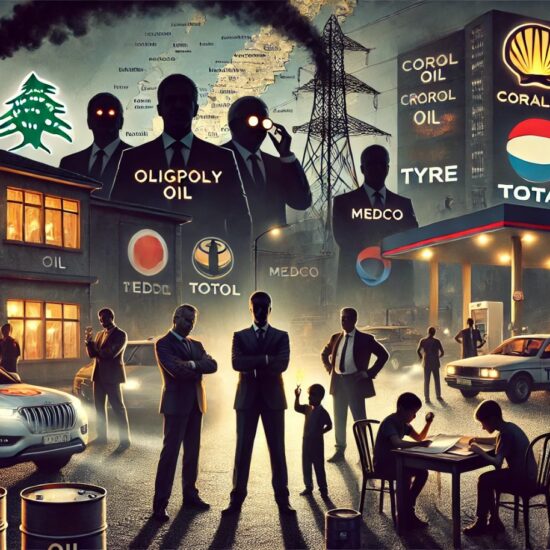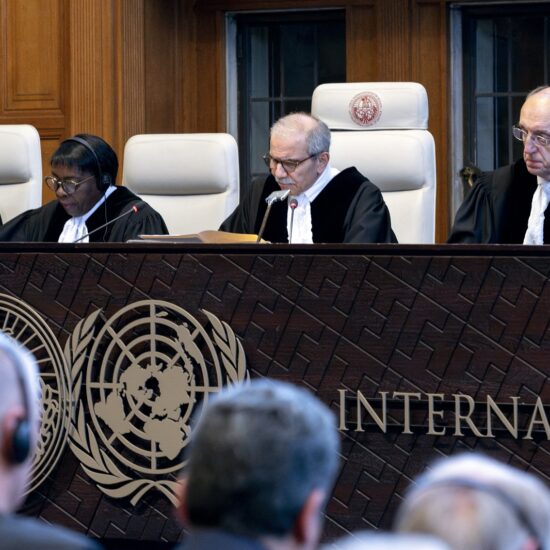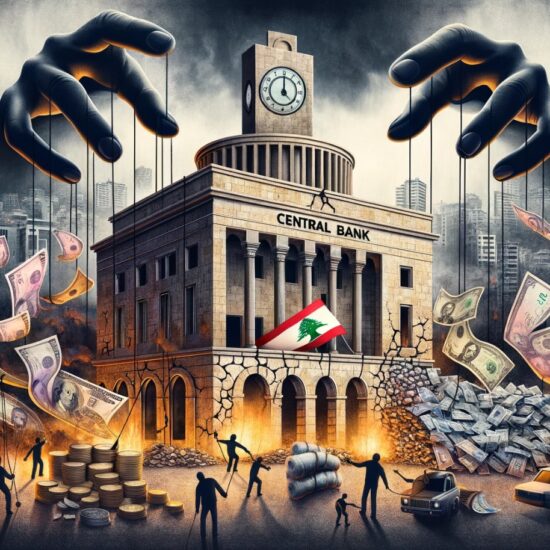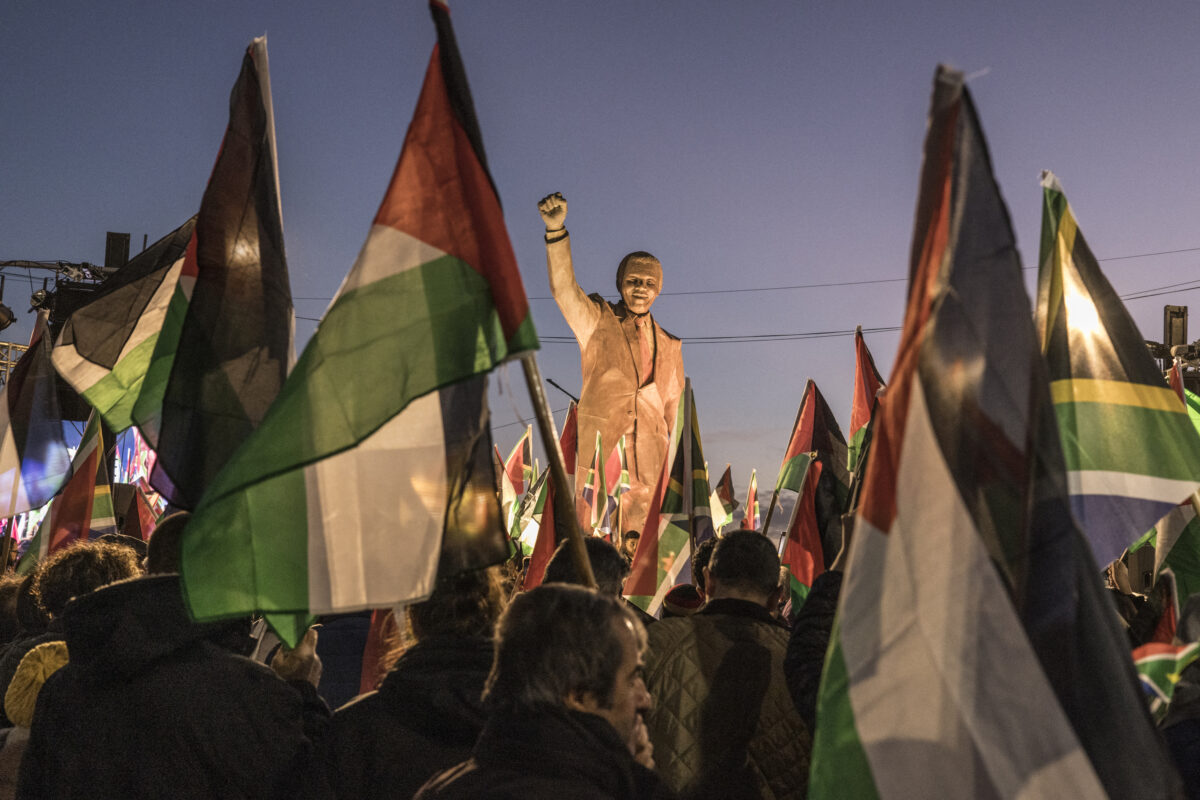
South Africa’s case on Israel’s genocide against Palestinians in Gaza presented in The Hague, Israeli lawyers reject the accusations, No respite in Israeli attacks against Palestine, Fearing escalation in the Red Sea, New US and UK attacks against Houthi sites in Yemen, Lebanon-Israel border land demarcation’s plan, US Envoy Amos Hochstein in Beirut, Hassan Nasrallah delivers his fifth speech since the beginning of the war, Shellings continue across southern borders, Israel’s ‘terror’ libel on journalists, 2024 opening session at the Grand Serail, What we have learned from AUB “Lebanon in its Second Century: A Vision for the Future”
To clarify, to demarcate, to mark the borders: between an occupied territory and a sovereign one, between an area declared safe and the certainty that it will not be, between one state and another, between pre- and post- October 7, between genocide and legitimate self-defense, between what is bearable and what is no longer. These seem to be the key words of the events that have shaken Lebanon, Palestine, and the region during the past week – the second one since the beginning of 2024 – which ended with the start of a worrying military escalation in Yemen, after Great Britain and The United States struck dozens of strategic sites run by the Houthis, and in The Hague, the International Court of Justice’s first public hearing on a genocide case brought against a state, Israel, the majority of whose citizens are the descendants of survivors of the Holocaust.
Having entered the hundredth day since the start of a conflict that rapidly spread on a regional scale, in which the retaliatory attacks went well beyond the response to the Al-Aqsa Flood operation, and the devastation on the besieged Gaza Strip has been accompanied by the raids on the occupied West Bank, the threats to the sovereignty of Lebanon, the bombings of strategic sites in Iraq, Syria and Yemen, on some fronts – those of diplomacy and narratives – it seems that the aura of uncertainty is giving way to a new clarity – however opaque, hesitant, and still overshadowed by the threat of a global war.
In the south of Lebanon, an attempt at negotiations and diplomacy seems to have taken shape after the visit to Beirut of the US diplomat Amos Hochstein, who met Lebanese authorities on Thursday, January 11, to discuss a possible long-lasting border calm. With Hochstein acting as a mediator, the United States aim to implement a comprehensive political plan for Lebanon – despite being rejected by some, like Maronite Patriarch Al-Rai, who on Sunday stressed the vital necessity of electing a president for Lebanon without linking it to the end of the war on Gaza, and warned against making any amendments to the borders in light of the presidential vacuum.
Washington’s plan involves the appointment of a new president, the formation of a government, and the initiation of economic improvements in the country. Because of the direct correlation between economic stability in Lebanon and broader regional security, the negotiations are underway with a strong commitment from the Americans to finalize land demarcation and eliminate potential for escalation.
Making clear, therefore, on the southern front, seems to take the geographical form of demarcating a disputed border. The demarcation of the 13 points remains in fact the main concern, while the issue of Shebaa farms and the Kfarchouba hills has been postponed to a later stage.
At the International Court of Justice in The Hague, instead, making clear assumed the form of a narrative shift, of a firm definition of the gravity of Israel’s actions against the Palestinian population of Gaza: a word – genocide – publicly used for the first time to address the crimes perpetuated by a Jewish state at the expenses of an indigenous, besieged – yet resilient – population.
And if it is true that liberation begins with narratives, what the Palestinian people gained in The Hague goes far beyond a mere contest over roles of victimhood and oppression. Through the intervention of South Africa – the homeland of Nelson Mandela, of racial division and fight against apartheid – the monopoly on discourses of memory and justice was surprisingly taken away from the Israeli state, which held it – with impunity, at least in the temples of international justice – for decades.
Even if a sentence will take years, the South African plea has stirred the murky waters of the history of international justice: by calling things by their name, it has thus demarcated not only the linguistic-legal boundaries of the genocide, but also, and more thoroughly, the moral ones of failure and shame – which will have repercussions for generations to come.
Finally, in Gaza, where the relentless Israeli offensive entered its hundredth day, death, destruction, displacement, hunger, and grief seem to be the only aspects whose boundaries continue to stand out against a background of void and desolation, while Israel’s expanding ground offensive has been forcing desperate Palestinian families from place to place in search of ever-elusive safety. A hundred days of implacable aggression, nearly 2000 massacres, 24,000 dead, and 2 million displaced people, make it hard to find a clarifying line apart from the one between what is bearable and what is no longer.
For the rest of the world, though, witnessing the live massacre of a besieged population, more than ever the line between the right and wrong sides of history has become clear.
In Lebanon
Hochstein in Beirut: US Envoy Amos Hochstein met with caretaker Prime Minister Najib Mikati on Thursday, January 11. Mikati previously said that he would discuss a diplomatic solution to the border clashes between Hezbollah and Israel, which have killed over 100 people in southern Lebanon and displaced over 70,000. Washington-mediated negotiations moved forward on many issues, despite talks about the fate of the disputed Shebaa farms and Kfarchouba hills – occupied by Israel, claimed by Lebanon, and internationally considered part of the Syrian Golan Heights – being delayed for later.
After both Beirut and Hezbollah showed openness on diplomatic talks, and Israeli officials threatened to escalate their attacks in case a solution is not reached, Washington is aiming for a long-lasting border calm. Through the mediation of Amos Hochstein, Israeli born Senior Advisor for Energy Security – who has previously mediated between Lebanon and Israel as the Assistant Secretary of State for Energy Resources -, the United States intend to realise a complete political plan for Lebanon which would include appointing a new president, forming a government, and kickstarting economic improvement in the country – convinced about the direct link between economic stability in Lebanon and security in the region.
Although the details of the agreement might not be announced until the end of Israel’s war on Gaza, and even if it is not possible to reach a final solution agreement at the present time, the American diplomat called for “working on a temporary solution so that things do not develop for the worse,” the state-run National News Agency reported. Hochstein’s plan would hinge on completing land demarcation, Israel’s withdrawal from the 13 disputed points, a return to the delineation of international borders established in 1923, the withdrawal from position B1 – which should be replaced under Lebanese sovereignty -, and a resolution of the issues related to the Shebaa farms and the Kfarshouba hills.
Discussing about restoring Lebanese control over the northern part of Ghajar, which was annexed by Israel in July, a diplomatic source suggested L’Orient-Le Jour the creation of a new Lebanese village, renaming the Lebanese section of Ghajar “Khraj al-Mari,” Arabic for “the outskirts of al-Mari,” a village a bit further north. Though, the diplomat did not address the issue of Ghajar residents who wish to remain in Israel. Moreover, discussions about the implementation of UN resolution 1701 were on the table, after Mikati and Foreign Minister Abdallah Bou Habib expressed Lebanon’s commitment to the resolution and to clearing Hezbollah from the border region if Israel withdraws from the Lebanese positions it occupies.
Objections: Due to a disagreement within the American administration regarding Hochstein’s role, the diplomatic plan might face a delay, as sources cited by L’Orient-Le Jour reported. Some oppose his involvement in political matters and the border demarcation issue, contending that his mission should concentrate solely on the hydrocarbons issue and only aim at safeguarding the oil and gas fields. In October 2022, in fact, the American diplomat facilitated a maritime demarcation agreement between Lebanon and Israel, enabling both countries to tap into gas resources in their respective exclusive economic zones.
Moreover, in light of a possible extension of the UNIFIL mandate in south Lebanon, peace-keepers showed themselves reluctant, as broadening their role and authority could expose contingents to greater danger, as they are already operating at maximum capacity. At the same time, in order to enhance the role of the Lebanese Army and deploy more troops in the south – so that Lebanese Forces could take the tasks that UNIFIL does not manage to handle -, the necessary financial resources should be secured, and stable economic conditions ensured.
Finally, from the perspective of Lebanese politicians, some looked with suspicion at the US Envoy’s plan to stabilize the region. Kataeb leader Samy Gemayel warned against any compromise in southern Lebanon that would be made “at the expense of Lebanon,” and, next to UN resolution 1701, he called for the implementation of resolution 1559, the fundamental condition for Lebanon to regain its full decision-making power. On the same line, Free Patriotic Movement leader Gebran Bassil said that though he would not refuse “anything that serves Lebanon’s interests,” he emphasized that any agreement would require approval from a President, a position that has been vacant for more than a year.
Not to mention that the negotiations’ success is closely linked to the halt of Israeli military operations in the Gaza Strip. While Israel has officially announced the transition to the third phase of the war, which focuses on targeted attacks instead of intense combat, Gaza continues to face tremendous strikes and massacres. Moreover, Egypt-mediated talks to establish a humanitarian truce and the release of hostages, were severely frozen by the assassination of Hamas leader Saleh al-Arouri in Beirut’s southern suburbs.
Nasrallah’s fifth speech: Hezbollah Secretary-General Hassan Nasrallah delivered another speech on Sunday, for the fifth time since the start of the war – and the third in less than two weeks -, to commemorate slain party commander Hassan Tawil, who was killed by an Israeli drone strike on Monday, a week before the speech. In his last public statements, Nasrallah had vowed to retaliate “on the battlefield” for the assassination of Hamas deputy leader Saleh al-Arouri in a drone strike on Beirut’s southern suburbs earlier on January: since then, the party has launched barrages on military targets in northern Israel, including a 62-rocket attack on the Meron air base.
Nasrallah began his speech by discussing Wissam Tawil’s journey within the party, paying tribute to several other fighters from the village of Khirbet Silm who “sacrificed themselves for the Resistance.”
He later tackled the situation in Gaza and the southern Lebanese front, addressing the growing failures of Israel, which, since October 7, is “concealing much more than in any other wars,” Nasrallah said, claiming that “Israel is immersed in failure,” that “some speak of a massive hole from which Israel cannot emerge,” and that it “has failed to implement both its declared objectives and those it has not disclosed.” Addressing the front of narratives as much as that of military losses – according to Nasrallah, Israel has been unsuccessful in preventing rocket attacks from northern Gaza toward Tel Aviv and has been unable to secure the release of a single hostage alive. Despite the advanced capabilities of its military and the absence of any opposing army, in fact, armed factions have posed challenges to the Zionist state. “After 100 days, the losses of the enemy increase, its confusion as well, and it is going in circles,” he stated, predicting that at the end of the war, when the truth will be revealed about the actual figures of losses among the IDF, “it will be a great catastrophe for Israel.”
Concerning the Resistance’s conditions regarding the war in Gaza, the Secretary-General announced that it rejects temporary ceasefires and demands a complete cessation of hostilities to resume negotiations for the release of hostages; while, commenting the the latest aggression against Yemen, he defined it as “British and American foolishness,” wondering how “the United States claims not to want to escalate the war, yet they themselves are doing so.” What is happening in the Red Sea and Yemen, in fact, might involve the retaliation of Iran, that will probably answer to the American and British messages, Nasrallah said: what is sure, though, is that the Houthis will not stop targeting ships in the Red Sea, severely blowing the enemy’s economies.
Nasrallah concluded his speech by threatening a new escalation, claiming that “we have been ready for war for 99 days, we fear nothing, and we will fight without limits and without borders.”
On the border: Meanwhile, as cross-border attacks continue and new Israeli strikes were reported across the southern borders, Lebanon filed its third complaint against Israel before the United Nations, after citing Israel’s use of white phosphorus in its attacks and the killing of journalists in previous complaints.
On Thursday, an Israeli strike killed two paramedics and destroyed an ambulance in a direct bombardment on an Islamic Health Authority emergency center in Hanine, according to a statement from the rescue force, affiliated with Hezbollah, without any immediate comment from the Israeli military. It was the first time in more than three months of cross-border shelling that a strike directly hit an emergency center in south Lebanon: before that, rescuers and medics have been wounded in Israeli attacks as they tried to reach the site of a previous strike or extract casualties.
The number of civilian deaths having risen to 25, while at least 140 Hezbollah fighters have been already killed, the party’s Executive Council Vice President, Sheikh Ali Dahmouch, claimed that Hezbollah has so far “only used a tiny part of its capabilities,” indulging in the deterrence strategy that it has been carrying out since the outbreak of the border clashes, while Hezbollah member and former government Minister Muhammad Fneish claimed on Saturday, speaking at a ceremony in Burj Qalaouiye honouring Hezbollah member Issa Nour al-Din, that nowadays Israel is “obliged to submit to the rules of engagement imposed by the resistance.”
As explained by Fneish, Hezbollah swiftly responds when Israel violates the rules of engagement between Lebanon and Israel, citing an instance of Hezbollah’s retaliation on Kiryat Shmona after the last Israeli attack on Hanine’s civil defense center. Fneish emphasized the awareness among the public and Israeli settlers regarding the significance and impact of Hezbollah’s responses, highlighting that Israel, which previously committed transgressions without consequences, is now compelled to adhere to the imposed rules of engagement.
Opening session: On Friday, January 12, the caretaker government was scheduled to convene with a 34-item agenda that included licensing offshore oil and gas exploration, fueling public power provider Electricité du Liban, mid-20th century commercial rent reforms, and appointing members to a cannabis cultivation regulatory authority. The Cabinet session – the first of the new year -, chaired by Prime Minister Najib Mikati, included the participation of Deputy Prime Minister Saadeh Shami and ministers.
In his opening remarks, the Prime Minister stressed the importance of unity to save the country and discussed ongoing efforts to elect a new President. He addressed Israeli aggression in southern Lebanon and Gaza, highlighting diplomatic efforts and calling for Israel to comply with international decisions for regional stability. The Prime Minister commended efforts to investigate recent cyber incidents at Beirut Airport and urged ministers to ensure the security of ministry computer systems.
During the meeting, the Environment Ministry sought approval for proposals related to public sanitation, including the continuation of existing contracts and the examination of expanding the Naameh landfill’s capacity. The session also covered items on donations, loans, and grants, including funding for the Emergency Social Safety Net program, a Chinese grant for solar power for Ogero (state telecoms provider), good governance programs, and a Food and Agriculture Organization-funded initiative for employment in the livestock industry.
Additionally, the cabinet discussed transferring the Jounieh Telepherique cable car from the Energy Ministry to the Tourism Ministry, prompted by an incident last month that left people stranded and required gradual rescue throughout the day.
Finally, while financial incentives for the public sector were on the agenda, Mikati decided to postpone the discussion due to “serious concerns about the gap between military, security, and administrative personnel.” The issue will be revisited in the next Cabinet session, with retroactive financial incentives effective from last December 1st, as the state-run National News Agency reported.
What we have learned so far: As the series “Lebanon in its Second Century: A Vision for the Future,” initiated through the American University of Beirut’s Faculty of Arts and Sciences, and Department of History and Archaeology, enters its second month, NOW’s Maan Barazy looked back at the main point of discussion brought to the table.
The panels have discussed Lebanon’s challenges and its efforts to create a roadmap for reforms and a comprehensive plan of action as the country approaches its second millennium. Focusing on key areas like economic justice, governance, politics, and the country’s position in a security context, the discussions examined Lebanon’s potential roles and the impact of challenges such as the Syrian exodus on sovereignty and social-security parameters. The role of culture in shaping Lebanon’s identity was also explored.
In evaluating Lebanon’s first millennium, discussions centered around institutions, productive sectors, and financial status: but while entering its second millennium, the main emphasis is put on the need for governance to ensure social justice and address the economic crisis. Concerns were voiced about preventing the collapse of public services, internal political discord, and brain drain. Security reforms were discussed to achieve full sovereignty, considering challenges from the Syrian exodus and the situation of security forces.
Speakers acknowledged that, four years into the economic crisis, Lebanon’s macroeconomic framework is severely impaired. The absence of a comprehensive crisis resolution plan poses a hurdle to long-term investments, risking further erosion of the country’s capital. With sovereign debt at 179.2% of GDP in 2022, compounded by currency depreciation and economic contraction, comprehensive debt restructuring is deemed necessary. Moreover, the current conflict and the absence of broader economic stabilization are now expected to push Lebanon back into recession in 2023 and 2024.
Despite the negative outlook, however, there’s a widespread acknowledgment that Lebanon’s economic model needs a change. The panels are in fact set to resume with new recommendations in the coming weeks, focusing on analyzing the spillover effects of the conflict in Gaza on Lebanon’s fragile growth model.
In The Region
No respite: After the beginning of the fourth month since the start of the conflict, Israel continued its airstrikes on Gaza, intensifying an already dire humanitarian situation. Israeli bombardment hit areas between Gaza’s southern cities of Khan Younis and Rafah, populated by those who fled from the north. The strikes disrupted internet and telecommunications services, hindering communication and creating challenges in providing prompt assistance to the wounded.
The relentless Israeli offensive in Gaza has resulted in a staggering death toll of nearly 24,000, with a significant number being women and children, according to Health Ministry figures, while the humanitarian situation in the besieged enclave is exacerbated by what the UN aid agency OCHA (Office for the Coordination of Humanitarian Affairs) described as “systematic blocking of humanitarian aid convoys” into northern Gaza by the occupying forces. Andrea De Domenico, OCHA’s head for the occupied Palestinian territories, expressed concern over the denial of support to hospitals, describing the situation as reaching a level of inhumanity beyond comprehension, although a deal negotiated between Israel and Qatar aims to deliver medicine to hostages still held in Gaza, as reported by Prime Minister Benjamin Netanyahu’s office.
Meanwhile, violence continues to surge in the occupied West Bank, with Israeli troops killing three militants who attacked a Jewish settlement. The overall toll in the West Bank since the Gaza war outbreak includes at least 337 people killed by Israeli troops or settlers, according to the Health Ministry in Ramallah.
To the court: On Thursday, January 11, South Africa has begun its genocide case against Israel at the International Court of Justice (ICJ) in The Hague, with the following opening remarks: “Decade’s long impunity for widespread and systematic human rights violations has emboldened Israel in its recurrence and intensification of humanitarian crimes in Palestine,” adding that, at the outset, “South Africa acknowledges that the genocidal acts and omissions by the state of Israel inevitably form part of a continuum of illegal acts perpetrated against the Palestinian people since 1948.”
South Africa’s Minister of Justice Ronald Lamola, along with lawyer Adela Hassim and the delegation, attended the ICJ to present a request for emergency measures, urging the court to order Israel to cease its military actions in Gaza, while alleging genocidal acts against Palestinians during the conflict with Hamas.
During the hearing, South Africa’s lawyers emphasized the lack of safe places in Gaza, citing thousands of missing individuals and hundreds of families wiped out with no survivors, and arguing that the condemned attacks carried out by Hamas on October 7 do not justify Israel’s violation of the Genocide Convention, as no armed attack on a state’s territory can justify such a violation. Including the issues of giving birth, food insecurity, and famine risk, the uninhabitable conditions of Gaza and the decimation of its people, as well as the impossibility of burying the deads, the South African plea underlined that the one in the Gaza Strip is the first genocide whose victims document their own destruction live.
The plea urged the court to impose an emergency halt on Israel’s aerial and ground offensive in Gaza, while emphasizing the importance of recognizing the rights of Palestinians, whose rights are “as important as those of other groups that have been protected in the past,” Max du Plessis, another lawyer representing South Africa at Thursday’s hearing before the ICJ, said, stating that there is a plausible reason to believe they are victims of genocide or at risk of genocide. British lawyer Vaughan Lowe, continuing to defend South Africa’s position, argued against Israel’s attacks on Gaza, describing them as terrorizing the population without distinguishing between the innocent and the guilty. Lowe asserted that any use of force, whether for self-defense or other purposes, must adhere to international law, and genocidal attacks against Gaza cannot be justified.
Accusations rejected: During the second day of public hearing at the International Court of Justice, in the lead-up to this case, Israel vehemently rejected the accusations brought, asserting that its actions in Gaza do not amount to genocide. Israel’s legal representatives defined South Africa’s case as “unfounded,” “absurd,” and a form of libel, contending that Israel’s primary objective is not the destruction of a people but the protection of its own citizens.
The core of Israel’s arguments revolved around its inherent “right to self-defense,” particularly in response to the attacks by Hamas on October 7. Its lawyers sought to emphasize what it termed a lack of evidence supporting the allegation of “genocidal intent” in its actions. In this regard, one of them, Christopher Staker, stated that “the inevitable fatalities and human suffering of any conflict” do not constitute a plausible demonstration of genocidal intent.
Malcolm Shaw, a professor of international law representing Israel, underscored the unique gravity of the charge of genocide, calling it the “epitome of evil” among violations of international law. He argued that incorrectly levelling such a charge could undermine the essence of this crime, while Prime Minister Benjamin Netanyahu claimed that “Israel is accused of genocide while it is fighting against genocide,” and that together with “terrorists,” they are “fighting lies.”
In contrast, South Africa presented evidence on Thursday, with lawyer Tembeka Ngcukaitobi asserting that the evidence of genocidal intent was “overwhelming and incontrovertible.” Israel’s legal representatives countered by insisting that the Israeli army had acted in compliance with international law in Gaza, and that the military took measures to minimize civilian harm, including warnings through phone calls and leafleting ahead of military actions. Omri Sender, another lawyer for Israel, emphasized the country’s efforts to facilitate humanitarian assistance in Gaza, absurdly portraying Israel’s objectives as protective of the civilian population rather than destructive, despite the evident stark reality on the ground in Gaza, where UN agencies report severe shortages and attacks on vital infrastructure.
In addition, ahead of the ICJ hearing, Galit Raguan, acting director of the international justice division at Israel’s Ministry of Justice, refuted claims that Israel had bombed hospitals, arguing that evidence showed Hamas using every hospital in Gaza for military purposes. Moreover, Israel’s legal adviser claimed South Africa had close relations with Hamas – an assertion that South Africa firmly rejects, after having also condemned Hamas’s actions on October 7 during their presentation at the ICJ; while, to the Israeli contention according to which South Africa did not attempt to address the issue directly with them before bringing the case to the ICJ, South Africa asserts it made efforts to reach out but received no response.
The court is expected to rule on nine provisional measures seeking the suspension of military operations in Gaza, but a specific timeline for the decision has not been provided. Until that moment, Israel argues that these measures cannot require a state to refrain from exercising its “right to self-defense.”
Striking Yemen: Despite the escalating risk in the Gaza conflict, Washington and London proceeded to carry out their threats to strike Yemen’s Houthis, the group responsible for disrupting international maritime trade in the Red Sea. The strikes occurred on Thursday night, targeting over 60 Houthi locations in 16 different areas, including the rebel-held capital Sanaa, Saada, the port of Hodeida, and Dhamar.
President Joe Biden ordered the strikes in response to unprecedented attacks on ships in the Red Sea that significantly impacted global maritime trade, calling them a successful “defensive action” after the “unprecedented” Red Sea attacks, and stated he would act again if the Houthis continued their “outrageous behaviour.”
After the Iran-backed militants warned of further attacks on ships in the Red Sea, the US conducted a new strike in Yemen on Saturday, targeting a Houthi radar site, coming amid heightened fears of regional escalation following numerous attacks in the country. The situation has in fact raised concerns about the already-undermined safety of shipping routes, with the US and UK stating that the strikes aimed to de-escalate tensions. While the US and UK have carried out strikes to counter these actions, the Houthis have intensified attacks on shipping in the Red Sea, declaring that American and British interests are now considered legitimate targets.
“Any American attack will not remain without a response. The response will be greater than the attack that was carried out with twenty drones and a number of missiles,” the group’s leader Abdel-Malek al-Houthi said in a televised speech on Thursday, Reuters reported, talking before the recent US-UK attacks on the country. Later, Hussein al-Ezzi, Houthis’ deputy Foreign Minister, threatened that the United States and Britain would “have to prepare to pay a heavy price.”
Meanwhile, regional leaders voiced concern at the violence, with Turkish President Recep Tayyip Erdogan describing the strikes on Yemen as disproportionate and saying “it is as if they aspire to turn the Red Sea into a bloodbath,” and Hamas holding Britain and the United States “responsible for the repercussions on regional security.” Nasser Kanani, spokesperson for Iran’s Foreign Ministry, argued that the Western strikes would exacerbate “insecurity and instability in the region” while diverting attention from Gaza. The United States, on the other hand, emphasized its lack of intention to seek conflict with Iran. National Security Council spokesman John Kirby stated on MSNBC that there was “no reason” for an escalation.
Finally, Saudi Arabia expressed great concern about the ongoing military operations and urged self-restraint and avoidance of escalation. The Kingdom, seeking to disengage from a nine-year conflict with the Houthis, has largely observed a truce since early 2022. As a crucial US partner, however, Saudi Arabia may have been informed and even approved recent strikes, as indicated by meetings between Antony Blinken and Saudi Crown Prince Mohammad bin Salman. The normalization with Israel issue, raised during Blinken’s regional tour, implies potential security guarantees from the US to Riyadh.
A postponed end: Just one day before the beginning of the strikes, on the night of Wednesday to Thursday, the UN Security Council demanded an “immediate” end to Houthi attacks against ships in the Red Sea, calling on all states to respect the arms embargo targeting the Yemeni group, Reuters reported. The demand came in a Security Council resolution that also called on the Houthis to release the Galaxy Leader, a Japanese-operated vehicle carrier linked to an Israeli businessman that the group commandeered on November 19, and its 25-person crew.
The resolution prepared by the United States and Japan, adopted by 11 votes in favor and four abstentions – including veto-wielding Russia and China -, “demands that the Houthis immediately end” attacks “that impede international trade and undermine navigation rights and freedoms, as well as the peace and security of the region.” However, with the recent strikes on the country, the end that was asked to be imminent could not but be postponed.
The provision amounted to an implicit endorsement of Operation Prosperity Guardian, a US-led multinational naval task force that has been defending commercial ships in the Red Sea and Gulf of Aden from Houthi missile and drone attacks. “The threat to navigational rights and freedoms in the Red Sea is a global challenge that necessitates a global response,” US Ambassador Linda Thomas-Greenfield said in urging the council to approve the resolution. The Houthi spokesman in Yemen, Mohammed Abdul Salam, dismissed the UN resolution as a “political game” and said the US was the one violating international law.
Since mid-November, when the Houthis seized the Galaxy Leader, the group has carried out 26 attacks in the Red Sea, according to the US military, to the point where local container ship traffic has fallen by around 70 percent. According to data from the International Monetary Fund’s Portwatch portal, compiled by Bianco Research, moreover, cargo volumes passing through the Bab el-Mandeb Strait fell by 46 percent between December 15 and January 7.
The Houthi attacks have disrupted maritime commerce, prompting some shipping lines to divert vessels from the Red Sea to longer routes, threatening to increase energy and food prices.
Libeling journalists: The Israeli army claimed that it is justified in having killed two Al Jazeera journalists in an air strike on their car in southern Gaza on Sunday – Hamza Wael Dahdouh, son of Al Jazeera’s Gaza bureau chief, and Mustafa Thuria, a freelance videographer for AFP and other news organizations – because the two men were operating a drone, posing a threat to troops, according to a report from AFP. The Israeli army referred to them as “terror operatives,” claiming that the two men were “members of Gaza-based terrorist organisations actively involved in attacks against army forces,” and that “prior to the strike, Dahdouh and Thuria operated drones, posing an imminent threat to army troops.”
Both Hamas and family members of the slain journalists rejected the Israeli claims that the journalists were involved in any work other than professional journalism. Thuria used drones for taking photos and videos which he sold to local and international news agencies, a common practice among photo-journalists worldwide.
Hamza’s father Wael al-Dahdouh, who is Al Jazeera’s Gaza bureau chief, commented that “these are fabrications. It is clear that they are attempting to defend themselves, justify what is happening, and derail the issue,” Dahdouh told AFP, adding that the IDF “wants to give excuses, this is clear even to children here,” as well as noting that Hamza had been an experienced journalist.
However, while at the time of the attack, the Israeli army said it was targeting a “terrorist” in the vehicle, when asked about the kind of drones the two men were using and the nature of the threat they posed to Israeli troops, the army refuted to answer; while, concerning the proof of the presence of so-called ‘terrorists’ in the targeted car, army spokesperson Daniel Hagari described the incident to NBC as “unfortunate,” and ensured that an investigation was continuing to determine what happened, claiming that “every journalist who dies, it’s unfortunate,” and that “we understand they were putting a drone, using a drone. And using a drone in a war zone, it’s a problem. It looks like the terrorists,” adding that Hamas uses drones to collect intel on Israeli forces.
Hamas’ press office rejected the army’s claims against the two journalists, saying Israel “creates false pretexts to justify its massacres and crimes against Palestinian civilians and journalists.”
What We’re Reading
Leader in waiting: The succession of Palestinian Authority’s President Mahmoud Abbas introduces a critical moment and a significant challenge in the Palestinian political front: as his appointed successor, Hussein El-Sheikh, is deeply unpopular, and other Fatah leaders have faced strong public disapproval in their leadership bids, the only prominent figure to succeed on the PA leadership seems to be current prisoner Marwan Barghouti. NOW’s Mohammad El Sahily drew the profile of this popular political figure, the only one that appears to be able to establish a strong and unified leadership which will doom the Palestinians and their just demand for self-determination and statehood.
Bargain for influence: Political psychologist Ramzi Abou Ismail wrote for NOW about Hezbollah’s controversial role, in light of the recent incident at Beirut airport – where screens displayed anti-Hezbollah messages – which exposed the deep divisions in Lebanese opinion about the party’s influence, ranging from strong support to intense opposition, and opening the way to a shift in its nature. By complying with UN Resolution 1701 in exchange for increased political power, the ‘Party of God’ risks to reshape Lebanon’s political landscape and threaten the country’s long-term sovereignty and internal stability.
The Red Sea front: Dana Hourany analysed for NOW last week’s significant political and military developments across the region, as the military forces of the United States and the United Kingdom initiated strikes against various Houthi targets within areas under Houthi control in Yemen, in response to the group’s disruption of commercial shipping routes in support of Palestine.
Lebanon +
In the latest episode of Sarde After Dinner, Médéa Azouri and Mouin Jaber have invited actor Adam Bakri, exploring with him what Palestine represents, unravelling the meanings behind its iconic symbols, and discussing global reactions to the current war.



